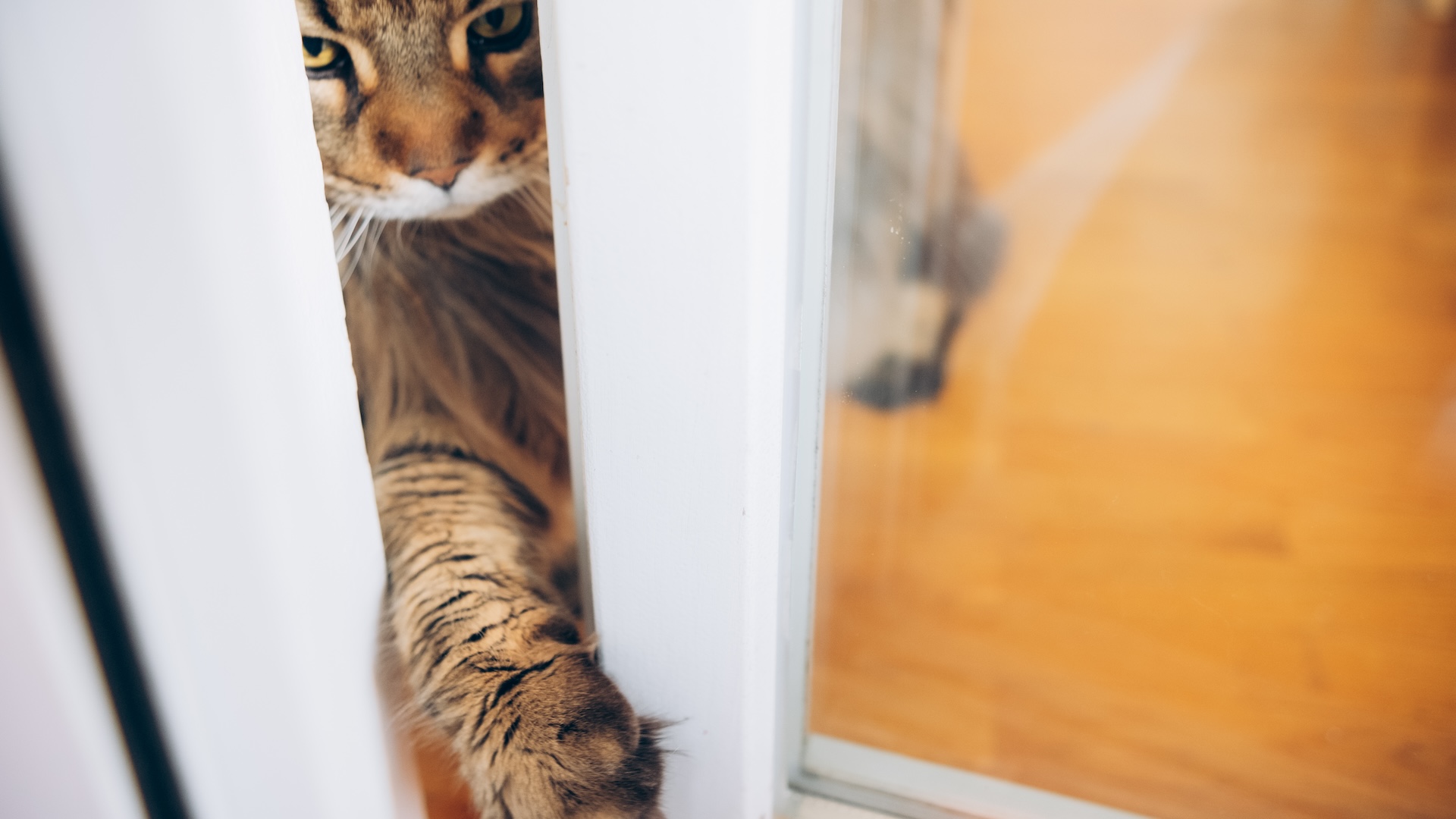Why do cats hate closed doors?
Meowing, sticking their paw under the door or pawing at the door are just some of the strange things cats do around closed doors. But why?

If you've ever witnessed a cat in front of a closed door, you might notice how much they seem to be annoyed by it. They might poke a furry arm under the crack, begin to paw at the door or even attack it while letting out agitated meows. But why do cats seem to hate closed doors so much?
Both evolution and pet owners themselves play a role, experts say.
Part of it is that cats are curious and have a fear of missing out (FOMO), said Dr. Karen Sueda, a board-certified veterinary behaviorist.
"It is a little bit of FOMO," Sueda told Live Science. "The FOMO of like, 'I don't know what's on the other side, and I want to go see and figure it out.'"
Related: How do cats land on their feet?
Cats are naturally curious creatures, and they like to keep an eye on everything happening in their territory, which includes their owner's house. This control helps keep them alive in the wild, but it can lead to behaviors we might interpret as odd, like attacking a door.
"Cats like to control access to spaces and vital basic needs and territory," cat behavior consultant Ingrid Johnson told Live Science. "It doesn't make them mean. It doesn't make them anything other than a species that is both predator and prey that has to hunt to survive but also has to feel safe and secure in their environment."
Get the world’s most fascinating discoveries delivered straight to your inbox.
A closed door hits on all of what cat behaviorist Jane Ehrlich calls the "three terrible C's" that cats dislike: They hate not having choice, they hate not being in control, and they hate change. While cats don't necessarily want to be involved in whatever is happening behind the door, they do want to know what's going on, she said.
Cats also enjoy attention from their owners — which a closed door eliminates. A 2017 study published in the journal Behavioural Processes suggests most cats prefer human interaction to other stimuli, including food and toys. And cats don't understand that a closed door is temporary, either, Johnson said.
"They just know that the spot that they previously had access to — where they feel safe, or they like to sleep or nap or eat or what have you — is now suddenly taken away," Johnson said. "When we control things for our cats, we create stress."
To help reduce their pets' anxiety, cat owners should maintain consistency in the areas of the house their cats can access, Johnson said. So if, for example, you don't want Fluffy in the dining room, don't block access only when you have visitors; make it off-limits all the time.
While cats often exhibit attention-seeking behaviors around closed doors, sometimes they may be in genuine distress. Behaviors such as, frantic vocalizing, flattened ears and hissing indicate a cat is truly upset, Sueda said. If pet owners have any concerns about their cat's behavior, they should visit a veterinarian to rule out any health problems, she advised.

Margaret Osborne is a freelance science journalist, copy editor, writer and producer based in Utah. Her work has appeared in Smithsonian magazine, The Scientist and on WSHU Public Radio, among other outlets. She has a bachelor's degree from Stony Brook University in journalism and German language and literature.



